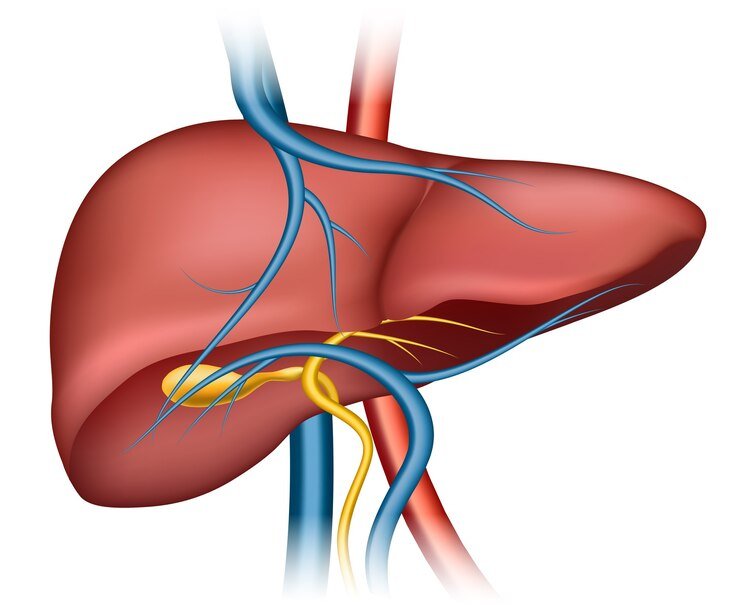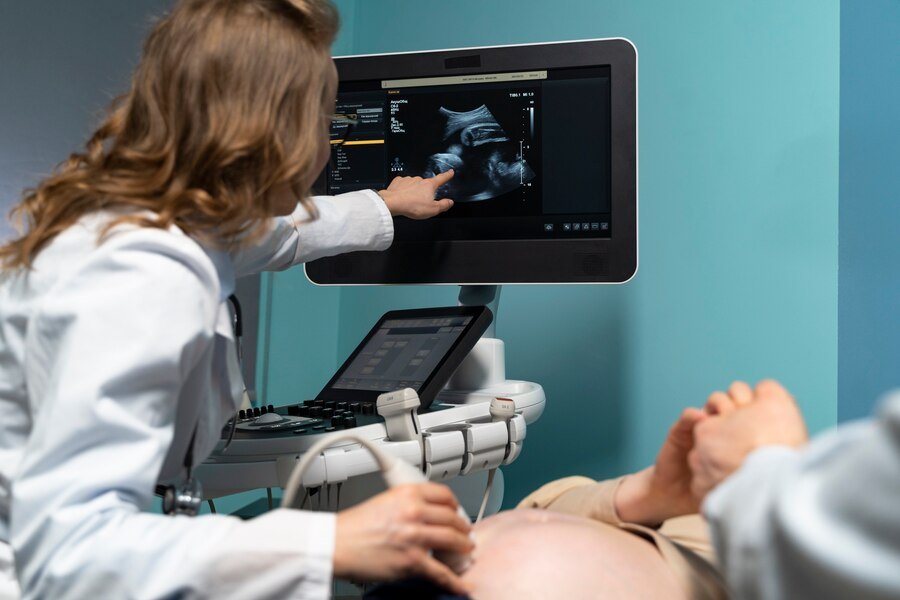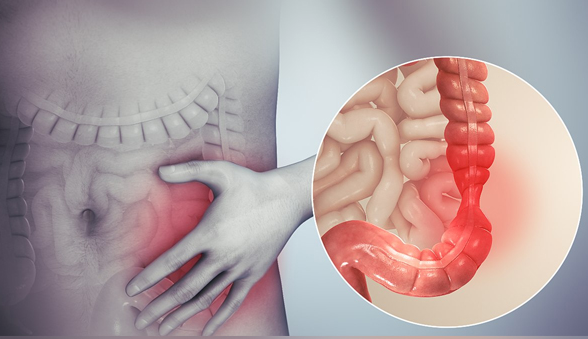The liver is one of the body’s largest and most vital organs, responsible for performing a wide range of functions, including detoxification, metabolism, and nutrient storage. Liver disease encompasses a spectrum of conditions that affect the liver’s structure and function, ranging from mild inflammation to severe scarring and liver failure. In this article, we will delve into the causes, symptoms, diagnosis, and treatment options for liver disease, shedding light on this complex and often misunderstood condition.Best Gastroenterologist in Rohini. To Know More About It Please Click Here Causes of Liver Disease Liver disease can be caused by various factors, including viral infections, alcohol consumption, obesity, autoimmune disorders, genetic predisposition, and exposure to certain toxins or medications. The most common causes of liver disease include Symptoms of Liver Disease The symptoms of liver disease can vary depending on the underlying cause and severity of the condition. Common symptoms may include: Diagnosis and Treatment.Best Gastroenterologist in Rohini. Diagnosing liver disease typically involves a combination of medical history assessment, physical examination, blood tests, imaging studies (such as ultrasound, CT scan, or MRI), and liver biopsy (if necessary). Once diagnosed, treatment options for liver disease may vary depending on the specific condition and its underlying cause. Treatment modalities may include To Know More About It Please Click Here Conclusion Liver disease is a complex and multifaceted condition that can have significant implications for a person’s health and well-being. Understanding the causes, symptoms, and treatment options for liver disease is essential for early detection, intervention, and management. By adopting healthy lifestyle habits, seeking timely medical care, and following recommended treatment plans, individuals with liver disease can optimize their liver health and improve their overall quality of life.Best Gastroenterologist in Rohini.
Advancements In Endoscopic Imaging Technology
In the realm of modern medicine, endoscopy has revolutionized the way clinicians diagnose and treat a myriad of medical conditions. Best Gastroenterologist in Rohini, The ability to visualize internal organs and structures without invasive surgery has been a game-changer in improving patient outcomes and reducing recovery times. Central to the success of endoscopy is the continuous evolution of imaging technology, which has seen remarkable advancements in recent years. To Know More About It Please Click Here Introduction to Endoscopic Imaging Endoscopic imaging involves the use of specialized instruments equipped with cameras and lights to visualize the interior of the body. These instruments, known as endoscopes, are inserted into natural openings or small incisions in the body, allowing physicians to examine organs such as the gastrointestinal tract, respiratory system, and urinary tract with precision and clarity. Traditionally, endoscopic imaging relied on basic optical systems that provided limited visual information. However, rapid technological advancements have led to the development of sophisticated imaging modalities that offer enhanced clarity, resolution, and diagnostic capabilities. Advancements in Endoscopic Imaging Technology Clinical Implications and Future Directions The continuous evolution of endoscopic imaging technology holds immense promise for improving patient care across various medical specialties. Enhanced visualization capabilities enable earlier detection of lesions, more accurate diagnosis of diseases, and precise guidance for therapeutic interventions. Looking ahead, future advancements in endoscopic imaging technology are likely to focus on further improving image resolution, expanding the range of accessible anatomical sites, and integrating artificial intelligence algorithms for real-time image analysis and decision support. In conclusion The field of endoscopic imaging technology has witnessed remarkable progress, driven by innovation and collaboration between clinicians, engineers, and researchers. Best Gastroenterologist in Rohini These advancements not only enhance the diagnostic and therapeutic capabilities of endoscopy but also pave the way for personalized and minimally invasive approaches to healthcare delivery. As endoscopic imaging technology continues to evolve, its transformative impact on medicine is poised to grow, offering new avenues for improving patient outcomes and advancing the practice of modern healthcare.
Understanding Colonoscopy: A Comprehensive Guide to Screening and Prevention.
Colonoscopy is a crucial medical procedure that plays a pivotal role in the early detection and prevention of colorectal cancer, one of the leading causes of cancer-related deaths worldwide. While the thought of undergoing a colonoscopy may evoke feelings of apprehension for some, understanding the importance of this screening tool and its potential life-saving benefits is essential. In this article, we will explore what a colonoscopy entails, why it is recommended, how to prepare for the procedure, and its role in maintaining colorectal health Best Gastroenterologist in Rohini. To Know More About It Please Click Here What is a Colonoscopy A colonoscopy is a diagnostic procedure used to examine the inner lining of the large intestine (colon) and rectum using a long, flexible tube called a colonoscope. Equipped with a tiny camera and light source, the colonoscope allows the gastroenterologist to visualize the entire colon, identify abnormalities, and perform biopsies or remove polyps if necessary. Why is Colonoscopy Recommended? Best Gastroenterologist in Rohini. Colonoscopy is primarily recommended for colorectal cancer screening and prevention. Colorectal cancer often develops from precancerous growths called polyps, which can be detected and removed during a colonoscopy before they have the chance to become cancerous. Additionally, colonoscopy can detect early-stage colorectal cancer when it is most treatable, leading to better outcomes and higher survival rates. In addition to screening for colorectal cancer, colonoscopy may be recommended for investigating symptoms such as rectal bleeding, changes in bowel habits, abdominal pain, and unexplained weight loss. It can help diagnose conditions such as inflammatory bowel disease (IBD), Crohn’s disease, ulcerative colitis, and colorectal polyps or tumors.Best Gastroenterologist in Rohini. Preparing for a Colonoscopy Proper preparation is essential for a successful colonoscopy. Your healthcare provider will provide detailed instructions on how to prepare, which typically involves a clear liquid diet for 1-3 days before the procedure and taking laxatives or bowel-cleansing agents to empty the colon. During the Procedure On the day of the colonoscopy, you will be given sedatives and pain medications to ensure comfort and relaxation during the procedure. The colonoscope is gently inserted into the rectum and guided through the colon while the gastroenterologist carefully examines the lining for abnormalities. If polyps are found, they may be removed or biopsied for further evaluation. After the Procedure: Following the colonoscopy, you will be monitored in a recovery area until the sedatives wear off. You may experience some bloating, gas, or mild discomfort, but these symptoms typically resolve within a few hours. It is essential to arrange for someone to drive you home after the procedure, as the sedatives can impair your ability to drive safely. Role in Prevention and Early Detection Colonoscopy is considered the gold standard for colorectal cancer screening due to its ability to detect and prevent the disease at an early stage. By identifying and removing precancerous polyps during the procedure, colonoscopy significantly reduces the risk of developing colorectal cancer and saves lives. Routine screening with colonoscopy is recommended for average-risk individuals starting at age 45 or earlier if there are risk factors such as a family history of colorectal cancer or certain genetic conditions. Depending on the findings, follow-up colonoscopies may be recommended every 5-10 years. To Know More About It Please Click Here Conclusion Colonoscopy is a vital tool in the prevention and early detection of colorectal cancer, offering a safe and effective means of screening for the disease. While the procedure may seem daunting, its potential life-saving benefits far outweigh any temporary discomfort or inconvenience. By understanding the importance of colonoscopy and following recommended screening guidelines, individuals can take proactive steps to protect their colorectal health and reduce their risk of colorectal cancer.Best Gastroenterologist in Rohini.




